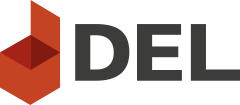Un+Contact to Re+Connect: Bridging Divides between Communities, People, and Spaces through Museum Programming
Case study: Ye Sul Park (Penn State)
Abstract
As informal learning institutions, art museums have played a crucial role in knowledge production by engaging communities from different backgrounds in art projects that promote diversity, inclusion, and equity. However, the ongoing global pandemic has affected every aspect of individual lives and societal landscapes, not only disconnecting institutional collaborations between museums and other organizations, but also isolating marginalized communities. In this case study session, I introduce several projects of the *c-lab at the Coreana Museum of Art in South Korea to discuss how digitally engaged art museum programming can help bridge divides between institutions, communities, as well as virtual and physical spaces. Focusing on its fourth programming in 2020, *c-lab 4.0, I will discuss how this research-initiative attempts to create interdisciplinary and democratic learning communities to envision further inter-institutional collaborations between higher education and art museums. *c-lab 4.0 explored entangled structures of contemporary social relationships under the title, Un+Contact, as the pandemic normalized contactless lifestyles and promoted communications in the hyperconnected virtual space. Through public programs that engaged a wide range of audiences across physical and virtual spaces, *c-lab 4.0 illuminated the blurred boundaries between virtuality and reality through artistic lenses and attempted to explore the potential of digital technologies for new modes of communications and learning in the post-pandemic era. This presentation investigates the implications of art museum programming to imagine more equitable and inclusive learning experiences in higher education.
